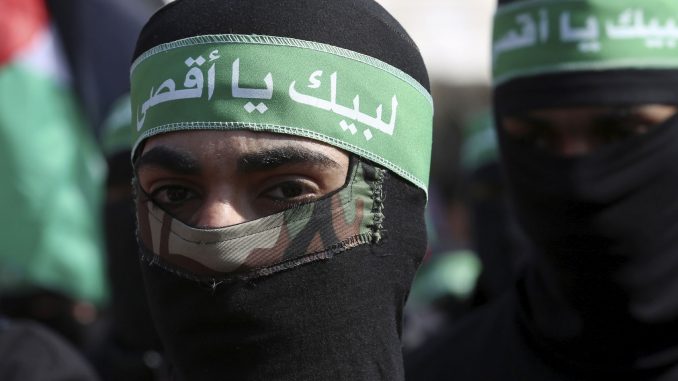
With the devastating attacks by Hamas on Israel on October 7th of this year that killed hundreds, it is important to understand the group that has caused Israel to declare war. Hamas is now one of two major political entities representing Palestinians. Its rival party, Fatah, which dominates the Palestinian Liberation Organization (PLO), governs the West Bank and has renounced violence and recognizes Israel’s right to exist. Hamas, to date, has not recognized Israel’s right to exist, and because of armed militantism and history of violent attacks has been labeled a terrorist organization by many countries.
The name Hamas is an acronym for Harakat al-Muqawama al-Islamiya (“Islamic Resistance Movement”) and was founded in 1987 by Sheik Ahmed Yassin. Yassin, who was active in the Muslim Brotherhood, had dedicated his early life to Islamic scholarship in Cairo. He established Hamas during the First Intifada out of fear of a rival Palestinian faction that also violently opposed Israel, the Palestinian Islamic Jihad (PIJ), would siphon support away from the Muslim Brotherhood.
In 1988 the organization would publish its first charter which called for the destruction of Israel and establishing an Islamic society in what was historically termed as Palestine. In 1993 Hamas first employed suicide bombings to terrorize Israel and to oppose progress towards a peace agreement between PLO leader Yasar Arafat and Israeli leader Yitzhak Rabin. Five months after the first recorded suicide bombing, Arafat and Rabin signed the Oslo Accords. This brought condemnation from Hamas.
Hamas continued violent attacks across Israel and in 1997 the United States official deemed the militant group a terrorist organization. The organization spearheaded much of the violence of the Second Intifada in the early 2000’s which saw the participation of other violent jihadist groups such as PIJ and Fatah’s Tanzim militia.
As tensions cooled in the aftermath of the Second Intifada, Israel agreed to pull out of Gaza and allow Palestinians to hold free elections. In 2006 Hamas won a majority in the Palestinian Authority’s legislator and formed a government. Its popularity in the election was due to its ability to provide social services to Palestinians such as keeping neighborhoods safe, and the perceived growing corruption of Fatah. This outcome was unacceptable for Fatah and a week-long period of violence broke out between the two rival militias. After a week of fighting, Hamas held control of the Gaza Strip while Fatah held the West Bank. These two Palestinian power centers still hold today.
The bifurcation of power remains a very unpopular issue among Palestinians who for the most part are against owing power to two rival factions. There has not been an election since 2006, but recent polling shows that if an election were held, Hamas would be victorious. Palestinian elections had been scheduled in 2021 but have been indefinitely postponed by Palestinian Authority President Mahmoud Abbas citing an alleged refusal by Israel to allow Palestinians in East Jerusalem to vote. Observers, however, suspect this is an excuse by Abbas to prevent what would most likely be a Hamas victory.
Since taking over the Gaza Strip, Hamas has begun firing rockets and mortars into Israel. Iran has indicated it initially provided the weapons, but since then Hamas has developed the ability to produce the weapons themselves after receiving training from Tehran. Hamas has also implemented incursions into Israel which notably in 2006 led the kidnapping of Israeli soldier Gilad Shalit. After long negotiations, Israel agreed to free 1,000 prisoners in exchange for Shalit’s release.
The last major incident before the massive October 7th attack by Hamas happened in 2021 around the time the Palestinian Authority postponed elections. Hamas had once again fired rockets, mortars, and implemented the use of suicide drones into Israel after weeks of tensions between Palestinians and Israelis over developments in Jerusalem. The attacks were carried over an 11-day period which saw ten civilians killed and more than 300 injured. It was reported Hamas coordinated with Hezbollah in Lebanon and Iran during the attack. Israel countered with attacks on Gaza that saw nearly $300 million worth of damage with nearly 200 Palestinians dead. Egypt and the United States brokered a ceasefire agreement with the Biden administration along with the United Nations seeking reconstruction without aiding Hamas.
After the October 7th attacks the future of Hamas organization remains uncertain. The attacks were a major victory by its militant members as seen by images online of its leaders celebrating the success of the fighting. At the same time, however, the attacks catapulted the group to an infamy it has never known. Israel currently looks to be poised to eradicate the group as an organization and it has garnered a vast international backing similar in the way the United States reacted to al Qaeda after 9/11. However, despite more than two decades, remnants of al Qaeda remain sprinkled throughout the world. Undoubtedly Hamas will put up fierce resistance but to discuss a future beyond that is sheer speculation.
